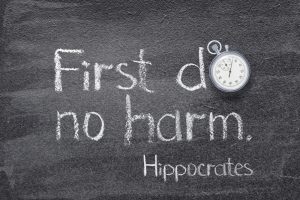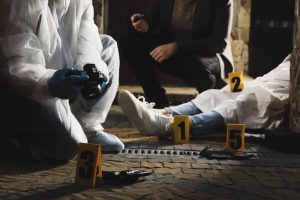By – James M. Katz, BA
Most legal nurse consultants and other legal professionals find themselves navigating the intricate processes of voir dire, a critical phase in jury selection that can significantly influence case outcomes. Understanding the strategies behind effective questioning and the importance of juror bias is important for your success. By delving into the principles of voir dire, you can sharpen your skills and ensure that the jurors selected are aligned with your case objectives.
Key Takeaways:
- Voir dire is a vital process in jury selection that helps identify potential biases among jurors, ensuring a fair trial.
- Legal nurse consultants play an important role in assisting attorneys during voir dire by providing insights into medical terminology and the implications of health-related evidence.
- A well-prepared voir dire strategy can lead to more favorable jury compositions by targeting relevant juror experiences and perspectives.
- Effective communication and questioning techniques during voir dire can reveal jurors’ values and attitudes that may impact case outcomes.
- Understanding the nuances of voir dire can enhance collaboration between legal professionals and consultants, leading to stronger case strategies.
The Concept of Voir Dire
A key component in the jury trial process, voir dire is a legal term that translates from French to “to speak the truth.” This phase involves the selective process of questioning prospective jurors to ascertain their suitability for a particular case. It’s your opportunity as a legal professional to ensure a fair and impartial jury is selected, one that can deliberate without bias, prior knowledge, or personal inclinations that could influence the final verdict. You will find that understanding the nuances of voir dire is important for both legal nurse consultants and attorneys alike.
Behind the scenes, the essence of voir dire serves several purposes. Primarily, the process allows you to uncover any potential biases that jurors may hold, which could impede their ability to render an objective verdict. Your goal during this phase is to evaluate jurors’ backgrounds, beliefs, and any experiences that may affect how they view the case. The questions you pose are designed to elicit responses revealing jurors’ preferences on issues central to the case, thereby aiding you in detecting those who might derail the trials through their prejudices.
Furthermore, this stage also serves a tactical purpose. It empowers you to exercise challenges for cause or peremptory challenges to remove jurors who may not be appropriate for your case. Understanding how to effectively maneuver through this process can significantly influence the outcome of the trial, making it imperative for you to master the art of questioning during voir dire. For additional insights on how the integration of Legal Nurse Consultants: A Hiring Guide for Attorneys can complement your efforts while navigating voir dire, you can deepen your understanding of the collaborative nature of legal proceedings.
Historical Background
Besides its contemporary application, the practice of voir dire has historical roots that date back centuries. Originally used in England, it derived from the need for a fair system to select a jury. The term suggests an effort to ensure integrity in the jury’s formation, reflecting the legal system’s transition over time towards greater emphasis on balanced representation. The evolution of voir dire coincided with significant judicial reforms aimed at protecting the rights of defendants and ensuring fairness in trials.
Historically, the procedures of voir dire varied across regions and judicial systems, but they all centered on the same fundamental principle: forming a jury that is both impartial and competent. Over the years, reforms have introduced more systematic questioning techniques and made process standards uniform across jurisdictions, striving to eliminate arbitrary selections and enhance the fairness of legal proceedings. As you examine deeper into history, you’ll appreciate that this process has continually adapted to adhere to evolving legal standards and societal expectations.
Further reflecting the adaptability of voir dire, numerous landmark cases in U.S. history shaped its present-day form. You should note how these instances highlighted the necessity for a comprehensive evaluation of jurors to uphold the sanctity of the courtroom and protect constitutional rights, reinforcing your role as a legal professional in safeguarding these principles.
Importance in the Legal Process
With our legal system relying heavily on the jury’s role in adjudicating cases, the importance of voir dire cannot be overstated. This initial phase of jury selection evolves into a battlefield for shaping perceptions and influences that will seep into deliberations. As a practitioner, you must recognize that the jurors’ backgrounds, belief systems, and biases literally become the lenses through which they view evidence and argumentation presented in court. By carefully navigating this process, you are not merely selecting jurors; you are setting the stage for the trial’s success or failure.
You should also consider the affective dimension of voir dire. The impressions you make on jurors during this phase can leave lasting impressions, establishing rapport or raising red flags as the trial progresses. Effective questioning not only extracts vital information but also shapes jurors’ understanding of their involvement. You’ll find that your approach can have a significant impact on establishing credibility for your case.
Process optimization during voir dire requires an articulate understanding of juror psychology and the ability to adaptively engage with prospective jurors. This ensures that you gather accurate information and fosters an environment conducive to open dialogue and honesty during questioning. Your effectiveness in this stage lends to the revered role of jury selection in maintaining the balance of justice.
Roles and Responsibilities of Legal Nurse Consultants
Understanding the Legal Nurse Consultant’s Role
Below, you will find a clearer perspective on what being a Legal Nurse Consultant (LNC) entails. As a healthcare professional who possesses both clinical expertise and legal knowledge, you serve as a bridge between the medical and legal realms. Your role usually involves reviewing medical records, interpreting complex medical information, and providing insight into the standards of care applicable in various cases. This unique combination enables you not only to assist attorneys in understanding intricate medical details but also to offer expert opinions on the validity of medical claims, making your insights invaluable during litigation.
Your work often extends beyond mere documentation review; you become an advocate for clear and concise communication of medical matters. When legal professionals present evidence or arguments, it’s your expertise that helps articulate how medical conditions impact a case. Additionally, you assist in creating a narrative that aligns with your clinical understanding, which is fundamental in ensuring that the jury or judge comprehensively grasps the medical aspects integral to the case. Your input can effectively shape the arguments put forth during legal proceedings, including supporting or disputing witness testimonies.
Furthermore, you continuously update your knowledge on both medical advancements and legal practices, ensuring your ability to provide the most accurate and relevant testimony. In cases where medical malpractice or negligence is alleged, your insights can speak to the consistency of care provided and whether it aligns with established medical norms. A strong comprehension of these elements not only enhances your credibility but also strengthens the overall case that legal professionals are handling.
Collaborating with Legal Professionals
Among your many responsibilities as a Legal Nurse Consultant, one of the most significant is working collaboratively with legal professionals. This relationship often entails communication with attorneys about the specifics of a case and the medical implications involved. Your expertise in deciphering medical jargon and presenting it in understandable terms is paramount in ensuring that legal teams are well-equipped to formulate their strategies based on factual medical insights. By serving as a consultant, you effectively contribute to the preparation of legal documents, expert reports, and trial presentations, ensuring that the medical elements are accurately presented and defendable.
In addition to assisting attorneys in case assessments and trial preparation, you may also find yourself engaged in mediating discussions between legal and medical professionals. This cross-disciplinary collaboration fosters a better understanding of how legal standards apply to medical practices, which is imperative for the effective management of cases involving patient care, medical technology, or healthcare practices. As you engage with groups of legal professionals, your goal is to align their strategies with relevant medical facts and perspectives, reinforcing the integrity and validity of their case.
A true understanding of the dynamics between the legal and healthcare systems enables you to spot potential conflicts or discrepancies early on, addressing them before they escalate. Your role is not solely advisory; you are also a key player in creating comprehensive strategies that drive case success. Through effective collaboration, you help legal professionals gain significant leverage in their cases, which can dramatically influence outcomes.
Contribution to the Voir Dire Process
The contribution that you provide to the Voir Dire process is incredibly significant. Voir Dire serves as the stage where jurors are selected, and your expert input helps ensure that the jury is composed of individuals who can impartially understand the medical nuances underlying the case. As part of this process, you educate attorneys about relevant medical conditions, treatments, and implications that jurors may need to consider. By doing so, you enable legal teams to frame questions that extract meaningful insights from potential jurors, assessing their biases and capacities to serve impartially.
Moreover, your insights are vital in identifying potential juror biases towards specific medical issues or healthcare providers. Through your deep understanding of medical standards and practices, you help attorneys strategize effectively around these biases. During voir dire, you assist in formulating inquiries that not only evaluate jurors’ knowledge but also gauge their perspectives on healthcare-related topics, ensuring a more favorable jury composition for the case at hand.
To further enhance the effectiveness of your contributions, you can compile profiles of potential jurors based on information gathered during the selection process. This strategic analysis helps the legal team not only understand biases at play but also helps in predicting how specific jurors may respond to complex medical evidence. By leveraging your expertise, you position the legal team to make informed decisions that can lead to more positive outcomes.
Preparing for Voir Dire
Unlike many aspects of the legal process, voir dire requires not only careful planning but also a nuanced understanding of human behavior. As a Legal Nurse Consultant (LNC), you bring a unique perspective that can enhance the traditional strategies employed by attorneys. For you, preparing for voir dire is about identifying the key issues relevant to the medical aspects of the case at hand. By collaborating with attorneys, you can help identify potential medical biases that jurors may carry, which could significantly impact their decision-making. This collaboration involves discussing specific medical issues that might arise and how to frame them in a way that resonates with the jurors, ensuring that they understand the complexities without becoming overwhelmed by the details.
Moreover, as you prepare, focus on developing strategies to engage jurors effectively during the questioning. You can assist the legal team in formulating questions that not only reveal biases but also allow jurors to demonstrate their understanding of the medical evidence provided. It is important to ensure that these questions are not overly technical, as your role is to bridge the gap between the complexity of medical terminology and the jurors’ understanding. Training the attorneys on how to involve you during this process can also prove beneficial, as you can provide real-time insights into jurors’ reactions to certain inquiries, thus equipping the team to adjust their approach as necessary.
Lastly, consider the role of non-verbal cues in this process. Your experience in observing interactions allows you to assess ways in which jurors communicate their understanding of the medical issues at play, even if they do not verbalize their thoughts. You should prepare to assist in interpreting these cues and aligning them with the goals of voir dire. By developing these strategies in advance, you empower the legal team to select jurors who approach the case with an open mind while being aware of potential biases that could influence their verdict.
Gathering Relevant Medical Evidence
Against the backdrop of voir dire, gathering relevant medical evidence is crucial to carve a path toward a successful jury selection process. As an LNC, your role in this area is to streamline complex medical information into digestible formats for both the attorney and the potential jurors. Your deep understanding of medical records, expert testimonies, and industry standards will provide the foundation upon which the legal strategy is built. Thoroughly analyzing the medical evidence allows you to identify key points that should be emphasized during voir dire, framing the narrative in a way that guides jurors’ perceptions.
To effectively gather this evidence, you need to consult a variety of sources, including medical literature, clinical guidelines, and case studies that directly relate to the specific medical issues within your case. This research may help you create a data pool that highlights not just the facts of the medical situation, but also establishes context around the treatment standards and practices relevant to the plaintiff or defendant’s claims. It’s crucial that you work closely with the attorney to delineate which pieces of evidence are critical for informing jurors of the case’s medical underpinnings while also educating them on how to approach the evidence critically and objectively.
Preparing this evidence allows you to act as a bridge between medical and legal worlds. The ultimate goal is to ensure that jurors appreciate the medical complexities involved and the implications they have on the case’s outcome. By making yourself knowledgeable about all aspects of the medical evidence, you position yourself as an invaluable resource during voir dire, enabling the legal team to craft narratives that highlight key points and mitigate misunderstandings about the medical evidence being presented.
Assessing Potential Jurors’ Background
Dire circumstances often lead to straightforward assessments, but in the context of voir dire, you’ll want a strategy that goes beyond the surface level. Assessing potential jurors’ backgrounds is a multi-faceted process that can uncover biases related to their experiences with healthcare, personal beliefs, and social perspectives. Your role in this assessment is pivotal; it starts with reviewing the jurors’ questionnaires to identify both their medical knowledge and their experience with legal cases, particularly those involving healthcare-related issues. You should pay attention to how their backgrounds may influence their views on the case, as personal experiences with medical malpractice or healthcare services can significantly shape their opinions.
Additionally, you need to prepare for face-to-face interactions with potential jurors during voir dire. The ability to observe verbal and non-verbal reactions can provide valuable insights that no questionnaire can reveal. You should be prepared to provide your insights to the legal team regarding how specific comments may indicate bias or potential sympathies that could affect jury decisions. This ongoing assessment is not just about gathering information; it’s about understanding how you can use that information to achieve a jury that will be fair and impartial in their considerations.
Relevant background checks and assessments may also involve researching jurors’ community involvement or professional affiliations, which can demonstrate existing biases. By leveraging this knowledge, you can help craft questions that probe deeper into these biases, pushing jurors to articulate any preconceived notions that may impact their ability to be impartial. You become an integral part of the evaluation process, so it is crucial that your insights are communicated clearly with the legal team to ensure all angles are covered.
Juror Selection Criteria
Not only does Legal Nurse Consultant – Everything You Need to Know emphasize the importance of understanding juror selection criteria, but it is also imperative for legal professionals like you to grasp how these criteria can be applied during the voir dire process. The success of a trial can often hinge on the chosen jurors, making it imperative for you to understand the nuances of each potential juror’s background, beliefs, and biases. A careful crafting of your jury selection strategy can lead to more favorable outcomes in litigation, enhancing the effectiveness of your role as a legal nurse consultant or legal professional.
Understanding Juror Bias
On occasion, every individual may carry some form of bias, which can significantly influence their decision-making abilities in a jury setting. As you evaluate prospective jurors, it’s important to consider how their personal experiences, cultural influences, and life circumstances might shape their views on a case. For instance, a juror who has previously experienced medical malpractice may harbor negative feelings towards healthcare professionals, which could affect their impartiality in a trial involving medical issues. Recognizing such biases allows you to create a more balanced jury pool.
Additionally, juror bias may not always be overt. Implicit biases exist at a subconscious level and can lead to judgments based on stereotypes or assumptions. Your role will entail probing into the backgrounds of jurors to uncover any potential hidden biases that could skew their perceptions during the trial. It is vital to assess how a juror’s beliefs about the justice system or prejudices connected to race, socio-economic status, or even defendants’ appearances may impact their decisions.
Furthermore, addressing juror bias explicitly during voir dire is imperative. You can craft targeted questions that draw out any preconceived notions that may surface when discussing specific aspects of the case. By directly addressing these biases, you create an opportunity to disqualify individuals who may not be able to render a fair verdict. The overall goal is to ensure that the jurors you select are capable of setting aside personal beliefs and judgments, allowing for a fair evaluation of the evidence presented at trial.
Key Factors in Evaluating Jurors
By becoming proficient in evaluating jurors, you will be better equipped to identify individuals who can serve impartially. When examining potential jurors, it is advisable to consider several key factors that impact their suitability for your case. These factors include jurors’ demographics, life experiences, educational background, and their attitudes toward the issues at hand. Each of these elements can provide insight into how a juror is likely to react to the evidence and arguments presented in court.
Demographics: Understanding jurors’ age, gender, and ethnicity can help you anticipate their perspectives and biases.
- Experiences: Jurors’ past experiences, particularly those related to the subject matter of the trial, play a significant role in shaping their views.
- Education: A juror’s educational background may affect how they interpret complex evidence.
- Attitudes: Jurors’ beliefs about specific issues relevant to the case can be telling indicators of their potential behavior during the trial.
- Thou must also factor in individual jurors’ responses during questioning, as these responses can reveal deeper insights into their biases and predispositions toward the case. By focusing on these key factors, you can ensure a more comprehensive evaluation of the potential jurors.
Techniques for Effective Questioning
Effective questioning during voir dire is paramount to uncovering the biases and issues that jurors may hold. Your ability to analyze jurors’ responses will greatly aid in selecting those who can be impartial during the trial. Approaching each juror individually allows you to employ tailored questions that tap into their beliefs and feelings toward the prevailing themes of the case. This is your opportunity to draw out nuanced insights that may not be readily apparent in their general responses.
Additionally, employing open-ended questions can lead to more fruitful conversations with jurors. This method encourages them to expand on their experiences and beliefs, rather than simply confirming or denying any preconceived perceptions. For instance, rather than asking, “Do you think medical professionals are trustworthy?” you could ask, “What are your thoughts on the healthcare system and its accountability?” Such engaging questions prompt jurors to articulate their feelings in a manner that reveals their biases. Through effective communication, you can glean invaluable information that informs your selection strategy.
To enhance your techniques during questioning, always foster an environment of comfort and trust. Jurors are more likely to divulge personal connections when they feel at ease, allowing you to identify biases more effectively. This approach not only serves to clarify potential juror issues, but it also means you respect their individuality throughout the process. Striving for an honest dialogue will empower you to select jurors who can render a fair verdict based on the case evidence.
To ensure your questioning techniques remain effective, keep refining your questions based on past jury selection experiences. This iterative process will lead to continuously improved interactions with jurors and a more insightful assessment of their biases. Consistent practice in evaluating jurors will lead to a heightened acuity in identifying individuals who can contribute constructively to the verdict. Strengthening your skills ultimately benefits your role in the courtroom. Thou must approach every jury selection as an opportunity for growth and understanding.
The Impact of Medical Testimony on Jury Selection
Many legal professionals understand that the inclusion of medical testimony can significantly alter the dynamics of jury selection. In personal injury and medical malpractice cases, the jury’s perception of medical issues can heavily influence their verdict. As a legal nurse consultant, you recognize the importance of conveying complex medical information in a manner that resonates with jurors. Your role goes beyond just providing medical expertise; it involves assisting attorneys in selecting jurors who can best appreciate the nuances of the medical evidence being presented. The presence of medical testimony can shape potential juror attitudes towards the case, impacting not only the decision-making process but also the overall outcome.
Importance of Medical Expertise
With your background in nursing or medical practice, you possess a wealth of knowledge that can be indispensable during jury selection. Jurors often have varying levels of understanding when it comes to medical terminology and concepts. Therefore, it is vital for you to identify and focus on potential jurors who can handle and comprehend complex medical discussions. A juror’s background, experiences, and beliefs can significantly affect how they interpret medical evidence and testimony. Your insights will help attorneys to select jurors who are likely to value accurate medical information, promoting a more informed jury discussion.
Furthermore, having medical expertise in your corner can instill a sense of confidence in the legal team. When jurors see that the case is backed by credible medical testimony, they may be more inclined to trust the information provided. This trust can lead to a more favorable perception of not only the medical expert but also the entire legal argument being made. As you assess the jury pool, pinpoint the individuals who exhibit openness to medical information, as they are likely to be influenced by your insights during the trial.
In collaborating with legal professionals, your role in medical testimony extends to educating both the attorneys and the jurors on the significance of the medical matters at hand. You can help attorneys highlight key elements of medical records, evidence, and expert opinions that will resonate with the jurors, ensuring they grasp the weight those factors hold in the case. When you successfully connect the medical issues to the jury’s understanding, you increase the impact of the testimony and enhance the probability of a favorable outcome.
Communicating Medical Complexities
The ability to translate complex medical issues into clear, understandable language is vital during jury selection. Jurors come from diverse backgrounds, and many may not have a strong grasp of medical science. Therefore, assisting legal professionals in identifying jurors who can understand these complexities is imperative. You must examine jurors for their critical thinking skills and their ability to engage with medical evidence, as this will ultimately influence their decision. Your expertise will guide attorneys in framing medical questions that are straightforward and accessible during voir dire.
Effective communication not only helps jurors understand the medical issues but can also sway their opinions and frame their attitudes towards the case. You have the opportunity to play an important role in shaping how jurors perceive the evidence. By identifying juror characteristics that predict receptiveness to medical testimony, you can help select individuals who will appreciate the medical professional’s insights and those who can critically evaluate the medical information presented. As a result, a positive relationship between the jury and the medical evidence can be established well before the trial begins.
Even subtle differences in how medical issues are communicated can lead jurors to different conclusions. By focusing on clarity and relatability, you can help ensure that the medical testimony is well received. The way you articulate medical complexities can bridge gaps in understanding and enhance jurors’ overall perception, thereby improving the case’s chances of success.
Legal Nurse Consultants as Expert Witnesses
With your expertise as a legal nurse consultant, you serve a vital function as an expert witness in legal proceedings. Courts often seek out nurses for their unique blend of clinical knowledge and understanding of legal procedures. By utilizing your clinical experience, you can provide nuanced insights into medical records and issues that impact the jury’s judgment. Part of your role involves explaining how complex medical procedures and standards of care relate to the case at hand, thus providing jurors with a clearer understanding of the medical framework that underpins the legal arguments.
Additionally, when you take the stand as an expert witness, your credibility can significantly affect how jurors perceive the evidence. Jurors are more likely to trust a medical expert who can convey complex ideas clearly and confidently. This confidence often translates into a stronger case for the attorney as they can rely on your ability to articulate the medical facts in a way that aligns with the legal strategy. Your key position as a bridge between the medical and legal fields highlights the importance of selecting jurors who will value your contributions.
Understanding the significance of your role as a legal nurse consultant can empower you to be a more effective advocate for your clients. By harnessing the strength of your medical expertise, you can facilitate a deeper understanding of medical issues among jurors, ultimately enhancing the presentation of the case. Your dual expertise in nursing and the legal landscape sets you apart, making you an invaluable asset in jury selection processes.
Challenges in the Voir Dire Process
All legal professionals and legal nurse consultants must navigate a series of challenges during the voir dire process. This phase of trial is not only about selecting jurors but also about ensuring that the jury is impartial and representative of the community. However, if you’re not prepared, you might encounter some significant obstacles that could adversely affect your case. A common issue is failing to properly assess the biases or preconceptions that potential jurors may harbor. Many times, jurors are not fully aware of their own prejudices, which can lead to misconceptions that may cloud their judgment during trial.
Below, you will find that a significant pitfall during the selection process is relying too heavily on your instincts rather than evidence-based assessments of juror suitability. It’s important to dig deeper during your questioning. Merely skimming the surface with general questions may leave you with jurors who harbor hidden biases that could be detrimental to your case. For example, a potential juror may initially express neutrality on an issue critical to your trial, but deeper inquiry can reveal strong underlying opinions that could influence their judgment. Thus, be sure to formulate targeted questions that elicit revealing responses.
Moreover, you should also be aware of the influence of group dynamics during voir dire. Each juror’s perspective may be shaped by their interactions with others in the jury pool. It’s important to observe how potential jurors engage with each other and to note any overarching trends in their responses to questions. This analysis can inform your strategy, allowing you to challenge or dismiss jurors who may be swayed by others. Actively monitoring these dynamics can bolster your confidence in selecting a jury that will fairly evaluate your case.
Common Pitfalls During Selection
Beside potential biases, navigating complex juror profiles can also introduce significant hurdles in the voir dire process. Jurors come from various backgrounds with unique life experiences, attitudes, and belief systems. This diversity introduces complexity as you attempt to paint an accurate picture of each juror’s capabilities and predilections. As a legal professional, it is imperative to be aware of socio-economic, educational, and cultural factors that could impact a juror’s outlook on your specific case. Each juror’s background shapes their perceptions about key evidence and arguments, making a nuanced understanding important.
Indeed, if you find yourself confronted with complex juror profiles, employing tailored strategies becomes key. Think about utilizing tools such as personality assessments or behavioral interviewing techniques during your questioning to better gauge potential jurors’ attitudes. By taking a more systematic approach, you enhance your ability to identify jurors who might lean toward your side or, conversely, those who may introduce bias against you. Selecting jurors is as much about addressing their complexity as it is about recognizing their potential for impartiality. Failure to adequately assess these profiles could result in a jury that fundamentally undermines your case.
Moreover, it is also wise to delineate a clear process for advocacy during voir dire. This involves not only determining where each juror stands but also critically analyzing what their composite profile suggests about their potential decision-making. By focusing on both the individual and their interactions within the group, you position yourself to make informed decisions based on a compelling juror analysis.
Navigating Complex Juror Profiles
Navigating complex juror profiles can feel overwhelming, but with diligence and strategy, you can transform these challenges into opportunities for selecting an ideal jury. The key lies in your ability to engage jurors in a way that uncovers their values and biases. This should guide you in designing questions that research deep into their life histories, belief systems, and experiences. When you approach juror selection with this mindset, you’re not just looking for neutral parties—you’re identifying jurors who resonate with your narrative and can appreciate the nuances of your case.
Addressing Juror Misconceptions
Navigating misconceptions is another critical challenge faced during the voir dire process. Jurors often arrive at the courtroom with preconceived notions shaped by social media, personal experiences, or broader societal attitudes. If these misconceptions go unaddressed, they could skew the jurors’ understanding of the evidence, leading to misinterpretations or biased verdicts. As a legal nurse consultant or legal professional, it is your role to not only identify these misconceptions but also effectively confront and debunk them during the selection process.
But addressing juror misconceptions requires a nuanced approach. During your questioning, it’s beneficial to ask direct questions that allow jurors to disclose their viewpoints on pertinent issues. This can serve as an opportunity for you to provide insightful clarifications that reshape their understanding. For instance, if you encounter a potential juror who holds a common misconception about a medical procedure or legal principle pertinent to your case, guiding them towards factual clarity can foster a more informed and objective viewpoint. The goal is to ensure that the jurors leave their preconceptions behind and engage fairly with the evidence presented at trial.
Conclusion
Hence, understanding the intricacies of voir dire is vital for both legal nurse consultants and legal professionals engaged in litigation. Your ability to effectively approach this process can significantly influence the outcome of a case. By being well-versed in the potential biases and perceptions jurors may bring with them, you enhance your skill set and increase your value to your legal team. As you navigate through the various phases of jury selection, consider how your insights into medical-related issues and patient care will enable you to communicate compellingly with jurors. This knowledge can ultimately help you provide substantial support to the legal argument, ensuring that the jury’s decisions are informed and rational.
Moreover, as you prepare for voir dire, you should also familiarize yourself with the specific questioning techniques and strategies employed during this phase. Understanding how to engage with jurors effectively can help you identify those who may be sympathetic to your case or reveal biases that could negatively impact the proceedings. Use your expertise in healthcare and patient experiences to bridge the gap between legal principles and medical realities, fostering belief and understanding among jurors. Your capability to articulate the complexities of medical terminology and scenarios in a relatable manner will not only solidify your role as a consultant but also elevate the quality of the overall jury selection process.
Finally, as you reflect upon the importance of voir dire, take into consideration the evolving nature of jury selection in the context of modern legal challenges. Each trial presents its unique set of dynamics, and your adaptability in mastering voir dire techniques can set you apart from your peers. Leverage your insights and experience not only to assist in jury selection but also to contribute to a fair trial process. As you engage with this aspect of litigation, remain focused on harnessing your expertise to enhance advocacy efforts for your clients. This proactive approach will ensure that you remain an indispensable asset in navigating the complex landscape of legal cases.
FAQ
Q: What is Voir Dire and why is it important for Legal Nurse Consultants?
A: Voir Dire is the jury selection process in a trial where attorneys question potential jurors to determine their suitability for a case. For Legal Nurse Consultants, understanding Voir Dire is significant because it can influence the composition of the jury. They can provide insights into medical evidence which can help attorneys in formulating questions that reveal biases or sympathies relevant to medical issues in the case. This understanding can ultimately assist in building a stronger case without undermining the credibility of medical testimony.
Q: How can a Legal Nurse Consultant assist during the Voir Dire process?
A: Legal Nurse Consultants can play a vital role during Voir Dire by providing expertise in the medical aspects of the case. They can help attorneys draft specific questions that target potential juror biases related to health care and medical malpractice. Additionally, by understanding jurors’ backgrounds and experiences, Legal Nurse Consultants can identify those who might lean toward favoring or opposing medical evidence. Their insights can ensure that the attorney selects jurors who are more likely to be favorable to the case at hand.
Q: What strategies can attorneys employ during Voir Dire to select the right jurors?
A: Attorneys can utilize several strategies during Voir Dire to choose appropriate jurors. They can focus on asking open-ended questions that encourage jurors to share their attitudes toward medical issues. It’s beneficial to explore jurors’ personal experiences with health care, which may influence their opinions. Additionally, attorneys can listen carefully to jurors’ responses and observe body language to gauge reactions. Collaborating with Legal Nurse Consultants can enhance these strategies, as they can offer valuable context regarding medical terminology and common perceptions related to health care, thereby aiding in effective selection.
Research Articles:
Ethical and legal challenges associated with disaster nursing. Aliakbari F, Hammad K, Bahrami M, Aein F. Nursing Ethics. 2015;22(4):493-503.
Access Here:
Informed Consent: Ethical and Legal Considerations for Advanced Practice Nurses. Linda Farmer MSN, ACNP-BC, Ann Lundy RN, JD. The Journal for Nurse Practitioners
Volume 13, Issue 2, February 2017, Pages 124-130.
Access Here:
Ethical, legal and professional accountability in emergency nursing practice: An ethnographic observational study. Alfonso Rubio-Navarro, Et Al. International Emergency Nursing, Volume 46, September 2019, 100777
Access Here:
Artificial Intelligence Ethics and Challenges in Healthcare Applications: A Comprehensive Review in the Context of the European GDPR Mandate. Mohammad Amini, Et Al. (2023). Machine Learning and Knowledge Extraction, 5(3), 1023-1035.
Access Here:




 By Lucy Peters
By Lucy Peters Thank you for visiting our AIHCP web blog. This category of the blog focuses on the specialty practice of
Thank you for visiting our AIHCP web blog. This category of the blog focuses on the specialty practice of